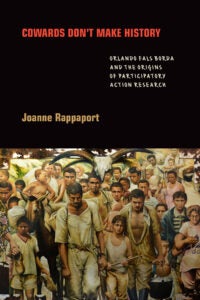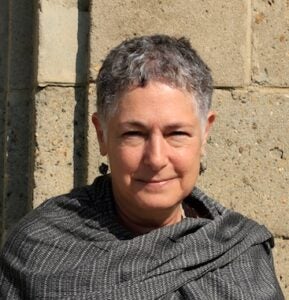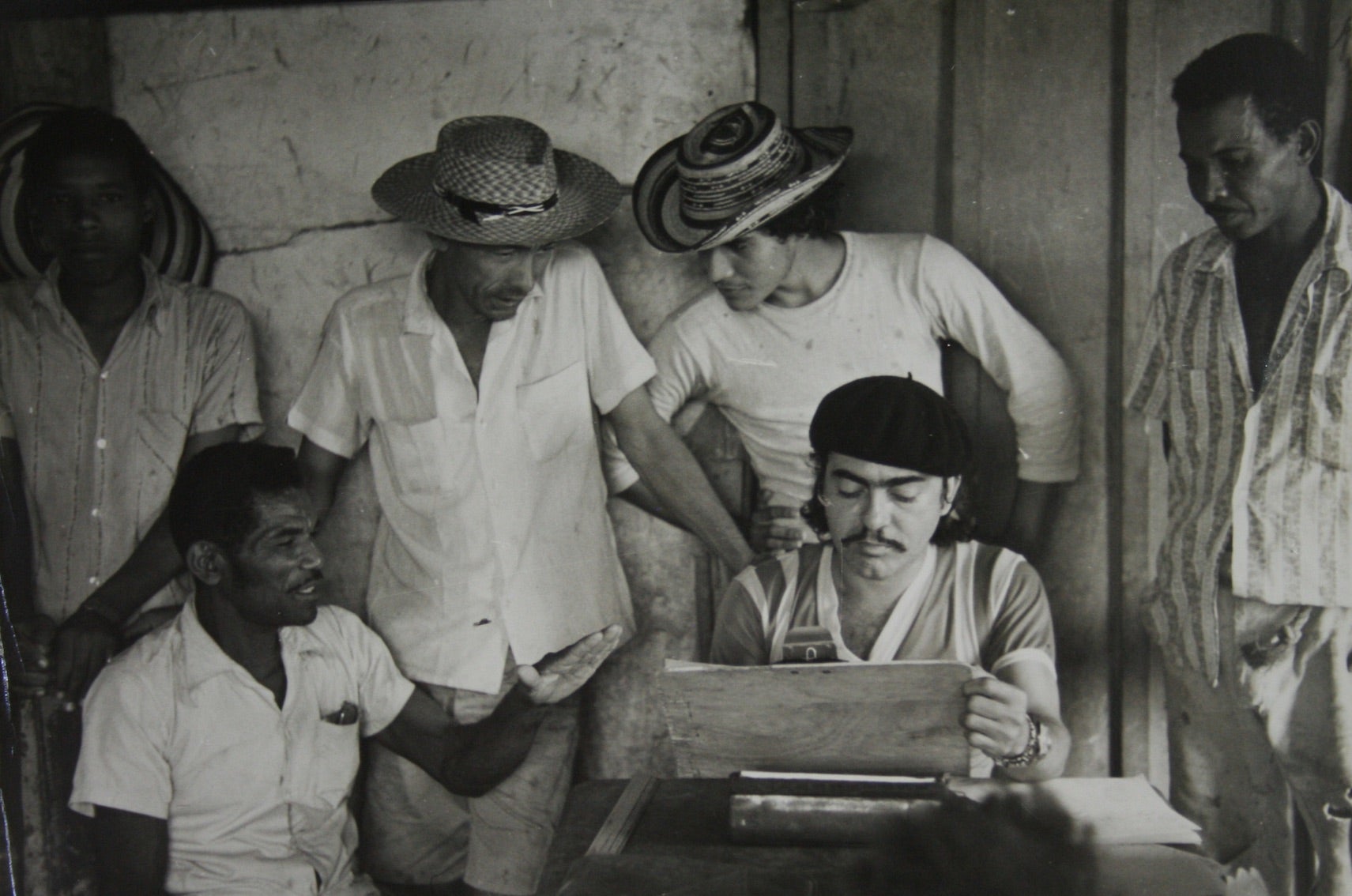Spanish and Portuguese Professor Publishes Book on Noted Sociologist Orlando Fals Borda
Joanne Rappaport, a professor in the Department of Spanish and Portuguese, published Cowards Don’t Make History in October of this year. The book follows the research-activist collective La Rosca de Investigación y Acción Social, which was created by renowned sociologist Orlando Fals Borda, a pioneer for sociological research in Latin America and beyond.

Cowards Don’t Make History
A History of Ethnography
Rappaport was inspired to write this book after she conducted research with an indigenous organization in Colombia in the mid-1990s to early 2000s, which ultimately was published as Intercultural Utopias. She also worked to train activists while there.
Much of her work was influenced by Fals Borda who is considered one of the originators of participatory methodologies in the social sciences. Referred to as “participatory action research,” Fals Borda’s methods of ethnographic research require the involvement of the group being studied to carry out the research being conducted about them.
Though the team Rappaport worked alongside made a great deal of progress, the researcher was interested in writing about the dynamics of collaborative research more in-depth after the conclusion of her work there, and so turned to Fals Borda’s personal archive as a resource.
Originally, Rappaport had only planned to use his work in the beginning of her book, but due to the prominence of Fals Borda’s work, it became the focus of the finished publication.
Rappaport explains that this is important because the purpose of this type of research is so that it can be used by the organizations representing groups being studied, so the involvement of locals is crucial.
“It’s a very essential method used throughout the developing world, as well as among minority communities in the global North today,” says Rappaport. “Going back to Fals’ original framework and seeing how it worked out in the 1970s is important to activist researchers today, especially in Colombia, where the 2016 peace process has been derailed by armed actors on the right.”
More about Rappaport

Professor Joanne Rappaport
In addition to her latest work, Rappaport has published four single-authored books on Latin America. She has also published in a variety of scholarly journals, including American Ethnologist, Collaborative Anthropologies, Colonial Latin American Review, Hispanic American Historical Review, History Workshop Journal, Journal of Anthropological Research, Journal of Latin American Anthropology, Journal of Spanish Cultural Studies, Man, Revista Colombiana de Antropología, Social Analysis, and Varia História, as well as in numerous edited volumes.
Joanne Rappaport is an editor of the journal, Latin American and Caribbean Ethnic Studies and of the Narrating Native Histories series of Duke University Press. She served as president of the Latin American Studies Association during 2016-2017.
-by Shelby Roller (G’19)
